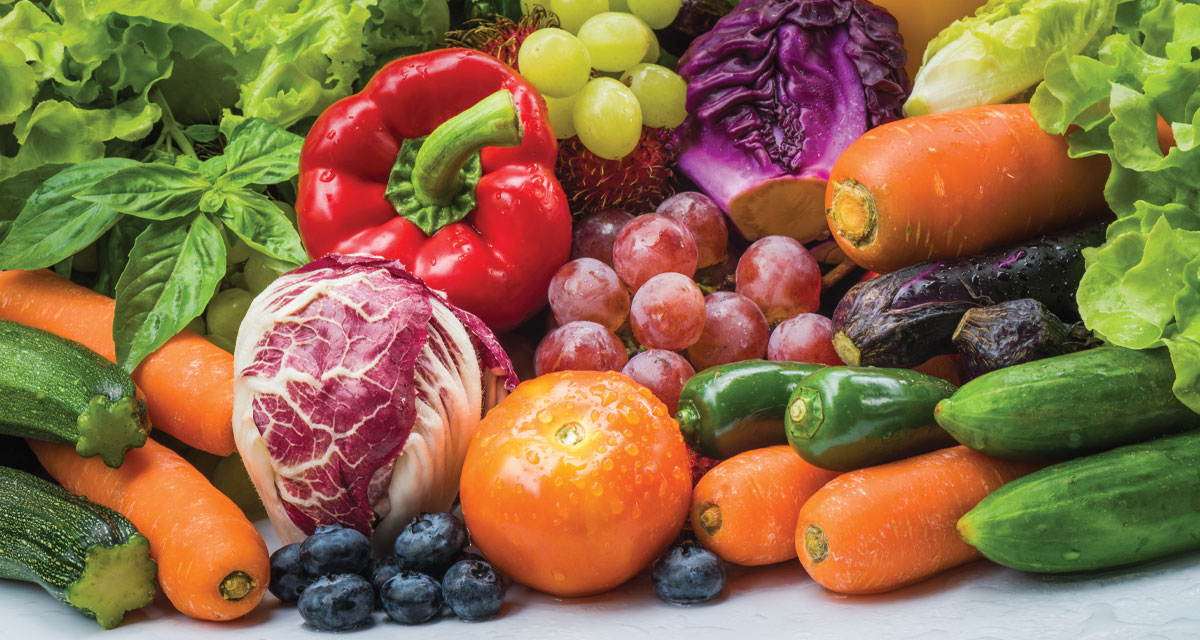Apples, blackberries, figs, raspberries, persimmons, and pumpkins top the list of favorite autumn fruits. With the vast array of options, the thrill of the season is to rise early to select the freshest produce from local farmers’ market vendors. You’ll find there greens, onions, snap beans, corn, sweet potatoes, yellow squash, and zucchini. In the semi-cool temperatures, patrons often feel at leisure to peruse before buying. On your next visit, become a well-informed, savvy shopper by knowing how to spot the most delicious jewels and extend the season with good storage practices. Isn’t it amazing that fruit and vegetables have rules?
Basic Freshness Rules
In desiring the best fruit and vegetables, inspect the produce by looking at the coloring, plumpness, and also determining whether, like apples, they have a shine. If the packaging is damaged, do not take the chance.
Additional rules.
- You can smell the health of produce. Trust your senses! Fragrance corresponds to the quality of its taste.
- Feel the weight. An apple and an onion, for instance, should be heavy.
Apple: Four characteristics guarantee an excellent pick: firmness, a natural shine, vibrant coloring, and a good weight.
After-Buying Tip: Always remove the fruit from its crate, box, or bag and assess each one for dents, bruises, or rot. One bad apple will indeed ruin the bunch. For best longevity, individually wrap apples and other similar tree fruits in paper and place them in a cool location.
Asparagus: The tender tip of the spears will wilt if kept in the plastic bag; instead, remove an inch at the stem and place them into a glass filled with one inch of water. Cover the tips with a plastic bag and use within a week.
The “Water Trick”: Fresh herbs placed in a glass of water and covered with a sandwich bag will survive up to three weeks in the refrigerator.
Blackberries: Choose the package which has shiny and plump blackberries. Like tree fruits, immediately remove from the packaging to ensure that molded, or crushed berries do not rot and spread this condition, ruining the bunch.
Washing Tip: Only rinse berries, fruits, and vegetables you intend to eat. Water will result in soggy fruit and rot.
Separation Tip: Bananas, apples, mangoes, kiwis, and pears especially need to remain apart from other fruits and vegetables to prevent early spoilage.
Cabbage: To test for maturity, gently squeeze the cabbage head, looking for firmness.
As a cool weather crop, cabbage should be stored in a cool, damp environment, such as the floor of a root cellar or in a refrigerator. Wrap the head in a damp paper towel and place it into a ventilated plastic bag.
Rubber Band Rule: Take off the bands that hold vegetables together; this releases restriction and builds vitality.
Onions: Choose well when considering a storage location for the edible bulb. It requires a cool, dark place, inside a mesh or braided bag. Unfortunately, if the condition is too cold, wet, or hot, they will rot or start sprouting. Distance the onion from all other produce to avoid all fruits and vegetables smelling alike. Consider chopping and freezing in a Ziploc bag.
Tip: Keep onions far away from potatoes
Cherry Tomatoes: Like most whole fruits, tomatoes also should not be refrigerated. Although they are subject to losing flavor, tomatoes will continue to ripen. Whole fruits should be able to remain at room temperature, cool and dry, for five days.
Refrigeration Tip: Maintain a temperature of at most 40 degrees or lower. Overstocking inhibits airflow, leaving no space to prevent food from going bad. Freezing fruits and vegetables is ideal; they can last beyond a year if sliced and well-sealed.
Greens: Toss rotten leaves, but wrap unwashed leafy greens in a dry paper towel to retain excess moisture. Place into a plastic bag, keeping it opened before placing it into the “crisper drawer.” Keep vegetables away from mangoes, pears, and kiwi. Reviving lettuce and herbs needs only two minutes in ice water.
Container Tip: A store owner is required only to provide what is for him or her an economical container, which does not imply longevity. Consider alternatives, such as Mason jars, Ziploc bags, or other sealable items.
Lastly, let’s resolve one more question about vegetables—unhusked corn should be refrigerated.



















